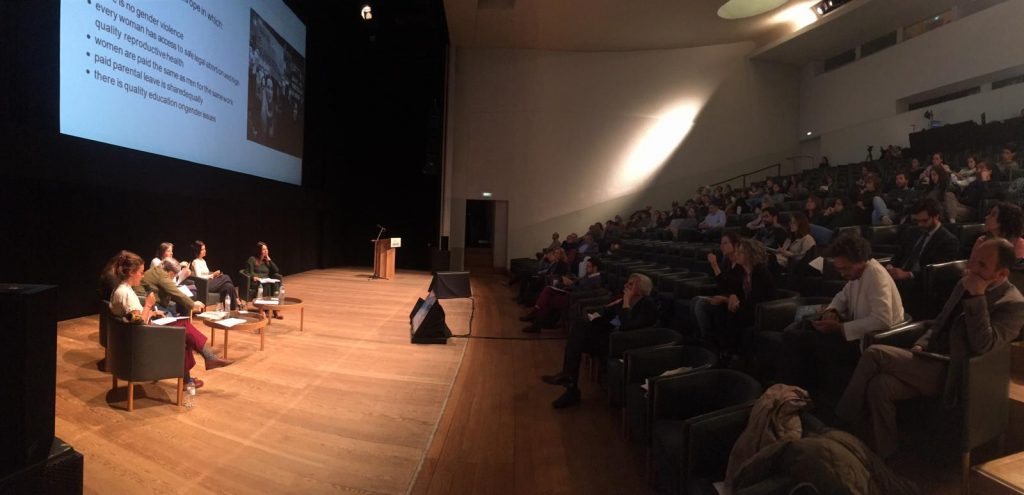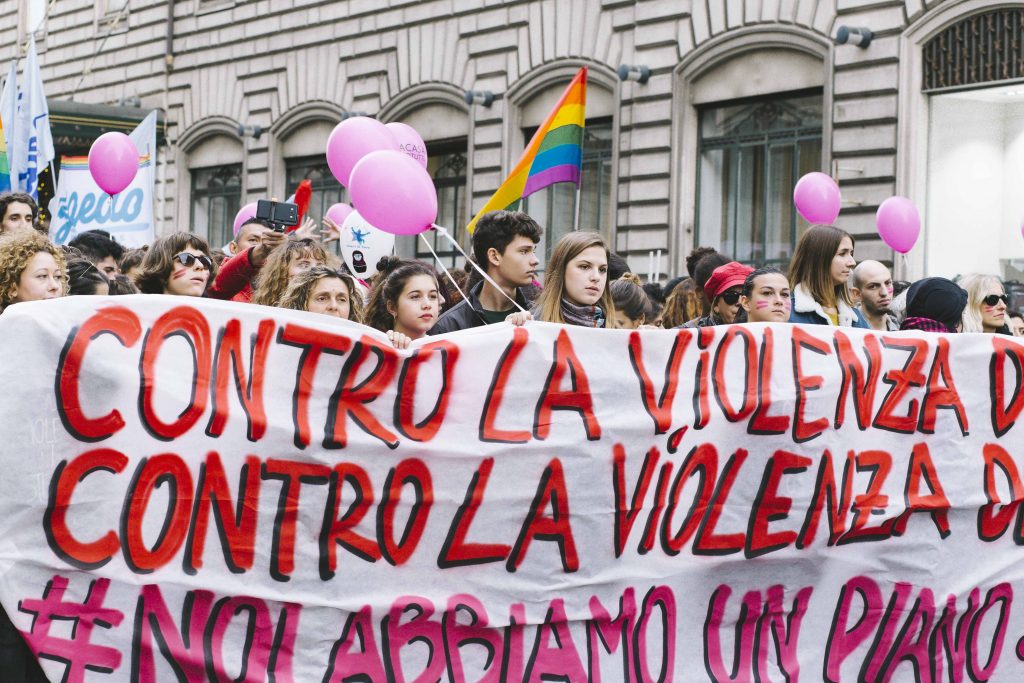On Europe Day, on the 9th of May, Transeuropa Caravans attended the Forum ‘A New European Utopia’ at the Serralves Foundation in Porto. This international seminar aimed to discuss with Portuguese and international experts the utopias that cross European citizenship – from the issues on transnational democracy, equality, ecology, feminism, basic income, and the transformative potential of technology. In a moment of European crisis and uncertainty about its future, the Forum tried to address, based on the diversity of the different “utopias” discussed, whether it is possible to design a new transnational utopia for the European Union.
After demonstrating its power of mobilisation and organisation in the past two years, the feminist movement is witnessing a moment to test strategies of implementation at different levels. It’s entering a decisive phase in which the demands made on the streets and during global mobilisations are tried to be implemented with concrete policies, through institutions. The feminist movement – with its internationalist, anti-capitalist and intersectional outlook – has the potential to lead the way towards a more progressive European future. It has the capacity to propose a strong political agenda that could work at a transnational level, generating new forms of organization to improve our living conditions.

Claraluz Keiser, from the Western team of Transeuropa Caravans, presented our proposal for a feminist Europe under the title “The utopia of equality and hospitality: the democratic power of feminism”. It is a political proposal based on the utopian vision that by 2030, we would live on a continent where (1) there is no gender violence, (2) every woman has access to safe legal abortion and high quality reproductive health, (3) women are paid the same as men for the same work, (4) paid parental leave is shared equally, and (5) there is quality education on gender issues.
The proposal was produced from the need to compose a pluralist and shared agenda that can connect the questions of reproduction and sustainability as a transformative axis of the whole society. Work demands, social security rights, the fight against precarity and basic income are part of the global shift towards a feminist society.

The proposal touches on the issues of access to abortion, economic inequality, parental leave, gender education and gender violence, and proposes a mechanism in which a European observatory of women’s rights would monitor the situation in the different countries and make recommendations based on indicators for each of the elements of the utopian vision. A European Commissioner responsible for women’s rights and gender equality would then be responsible for conducting dialogues with member states and civil society organisations on these recommendations, ensuring that progress is made towards the objectives.
The main driving force of feminist mobilisation has been the fight against patriarchal violence – but progressively, the attention is also moving towards other types of violence and power relations that affect other areas of our life: from the environment, the precariousness of work, and the retrenchment of our welfare state. The possibility of a life that is more than just surviving, should become one of our main priorities, whether in the streets or in our demands to European institutions. This proposal aims to bring us closer to a feminist utopia.

